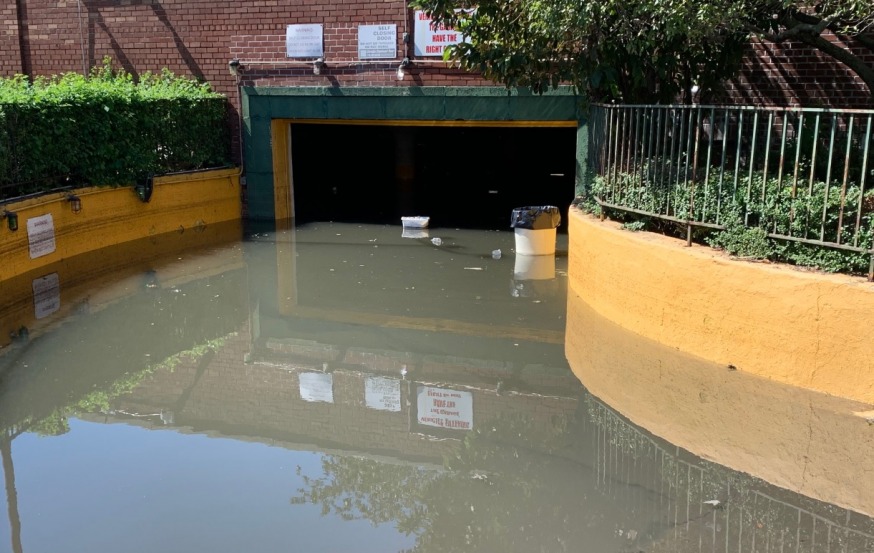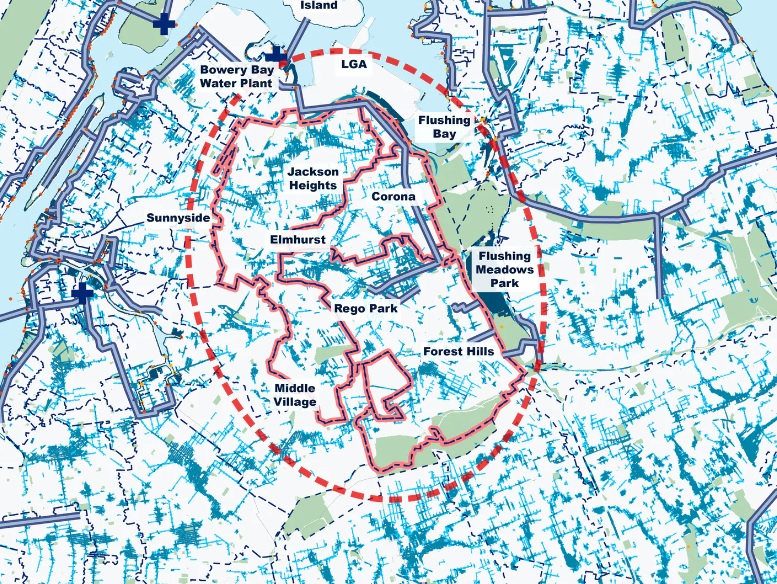
Flooding in Queens last year stemming from Hurricane Ida (Photo: Rep. Grace Meng)
July 22, 2022 By Christian Murray
As New York braces itself for another hurricane season, a new report has been released that looks at how the city and state should address flood risks for residents of central Queens.
The report, titled Preventing Another Ida: Stormwater Management and Basement Apartments in Central Queens, focuses on the neighborhoods of Jackson Heights, Woodside, Elmhurst, Corona, Rego Park and parts of Forest Hills, where many low-income immigrants reside in unregulated, illegal basement apartments.
The study, released Monday by the Regional Plan Association, found that there are approximately 31,000 low-density residential buildings in these central Queens neighborhoods that have below grade basements, which property owners frequently convert into unlicensed apartments. Many are at high-risk of flooding during extreme rainfall.
The study comes as the one-year anniversary or Hurricane Ida approaches, when 11 Queens residents died—most of whom drowned in basement apartments.

Study Area (RPA)
The report calls for additional green infrastructure to manage stormwater runoff, noting that central Queens needs approximately 40 times more green infrastructure capacity to manage—or absorb— stormwater associated with weather-related threats. Currently, only three acres of land in central Queens is devoted to flood mitigation.
The report, however, notes that if 5 percent of roadway space were to be set aside for stormwater management, these central Queens neighborhoods could potentially be able to handle future storms like Hurricane Ida. Local, state and federal governments should provide the funding for such infrastructure, according to the report.
The study says basement apartments also need to be legalized and made safer. It says that the state should grant New York City with the authority to regulate such apartments.
“New York City is dealing with two simultaneous crises: the extreme lack of affordable housing and climate change-fueled weather events,” said Tom Wright, President & CEO, Regional Plan Association.“Our research indicates that increased investments in green, flood-proofing infrastructure, in combination with easing restrictions on Accessory Dwelling Units in New York and providing funding to bring them up to code, can lead to safer homes for folks living in basement apartments. “
The report says there should be an amnesty where homeowners can legalize their basement apartments and programs that help them bring them up to standard.
“This report emphasizes the need for some of what many Queens community members have called on the city to seriously invest in for years: Green infrastructure to mitigate storm damage and the legalization of basement apartments to bring them up to code,” said Queens Borough President Donovan Richards.
“If we’re serious about preventing the devastating loss we saw a year ago with Hurricane Ida and ten years ago with Hurricane Sandy, we must act now and implement the solutions in this report and put our most at risk communities first.”






